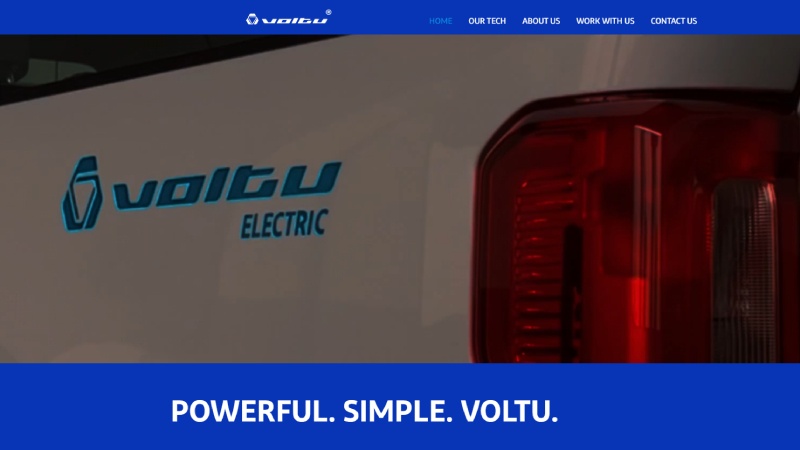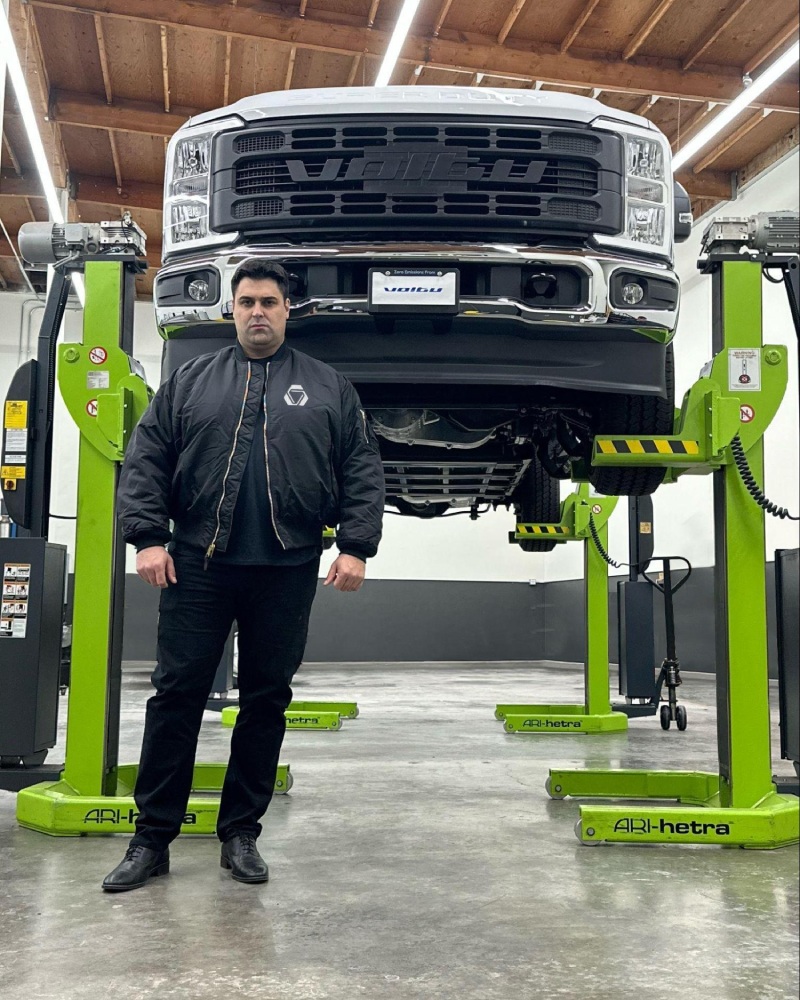
Class 3 trucks are used in urban areas, commercial zones, construction sites, and industrial areas because of their weight-bearing capacity, maneuverability, and usefulness. However, the evolution of Class 3 electric trucks has further increased their practicality and suitability across many departments.
Let’s discuss how electric trucks are going to revolutionize Class 3 trucking.
Uses of Class 3 Trucks
The following are the most common uses of Class 3 trucks.
Urban Delivery System
Class 3 trucks are perfect for urban deliveries, i.e., Class 3 trucks made by Voltu Motor have the most suitable sizes. They are easily maneuverable across busy city roads and can navigate through the streets. Class 3 trucks ensure timely deliveries safely.
Utility Vehicles
Utility companies and municipalities customize Class 3 trucks to provide essential utilities across the city. These trucks can easily reach any corner of the city to offer road repairs, telecom, and electricity services.
Refrigeration Units
Food and medicine companies use Class 3 trucks as refrigeration units to transport temperature-sensitive food and medicines. These trucks maintain the inside temperature, ensuring the food stays fresh and medicines do not lose their potency.
Material Transportation
Construction companies use Class 3 trucks to transport materials, equipment, and tools to and from construction sites. These trucks can easily carry heavy loads and efficiently reach industries in residential and commercial zones.
Towing Vehicles
Class 3 trucks are reliable options for towing heavy vehicles, such as cranes and other heavy machinery. They are also used to tow vehicles that have an accident and are left unassisted on the roadsides.
Transportation
Class 3 trucks are cost-effective alternatives for transportation for small groups of people. They can adapt to seating arrangements and act as a shuttle service to and from construction sites or any other short to medium distances.
Specialized Services
Class 3 trucks are a suitable option to be customized for specialized services. They can be turned into ambulances, medical units, mobile command centers, mobile labs, waste management units, etc.
Benefits of Electric Trucks
The following are the most common benefits of electric trucks that are revolutionizing the trucking industry.
Environmental Benefits
- They are environmentally friendly and do not produce harmful gases like diesel trucks.
- Electric trucks do not pollute the surroundings of residential areas.
- They do not emit carbon, contributing towards climate change control.
- Electric trucks operate quietly and do not cause noise pollution.
- Communities do not bother when electric trucks work or pass nearby.
- Electric trucks can operate in areas where diesel vehicles are not allowed.
- The air quality improves with the increasing use of electric vehicles and trucks.
Cost Benefits
- The operational and maintenance costs of electric trucks are minimal.
- They do not need diesel fuel and the cost to charge the electric battery is lower than diesel prices.
- Electric trucks do not require maintenance very often, which also increases the operational time of these trucks.
Performance Benefits
- Electric trucks offer instant torque and smooth acceleration.
- It reduces driver’s fatigue.
- Electric trucks can be customized to become various useful vehicles, such as ambulances and emergency rescue vehicles.
Marketing Benefits
- Investing in electric trucks for a logistics business conveys prioritization of the message of sustainability among peers.
- People love to work with companies that use environment-friendly equipment and vehicles.
- These electric trucks can pull environmentally conscious customers for your business.
Role of Electric Trucks in Class 3 Trucking
The following are the most crucial roles eclectic trucks play in Class 3 trucking.
Sustainability
Class 3 trucks are commonly used in urban areas for utility services, deliveries, and emergency services. However, the typical Class 3 truck is notorious for its tailpipe emissions. On the other hand, with the evolution of Class 3 trucking technology, electric trucks have reduced carbon emissions in urban areas and contributed to global sustainability goals.
Urban Mobility
Diesel trucks make a lot of noise, and many municipalities ban their operation at night. Electric trucks, on the other hand, do not cause noise pollution and can operate 24/7 in residential areas without disturbing the neighborhood. Furthermore, they are easy to maneuver around the city’s tight streets.
Cost Effectiveness
Diesel trucks have high operating costs, such as refueling, service, and maintenance. On the other hand, electric trucks are expensive to purchase but have minimal operational costs.
Charging the electric battery costs less than refueling the truck with diesel. The truck also has a few moving parts that require minimal servicing. The industry is now moving towards cost-effectiveness, and Voltu Motor is a leading organization committed to being the future of electric trucks.

Voltu Motors says:
“We are passionate about fostering a clean, sustainable future for transportation. By continually reshaping industry benchmarks and pushing the limits of technology, we are committed to leading the way in sustainable innovation. Our goal is not only to meet today’s challenges but to help shape a better tomorrow for generations to come.”
Evolving Technology
Battery technology is continuously improving to increase the operating time and efficiency of electric trucks. The goal is to provide more running hours on a single charge without compromising the truck’s speed or weight-bearing capacity.
Emission Regulations
Many residential areas have emission regulations that restrict the entry of diesel vehicles. Electric Class 3 trucks can work in those areas if they comply with the emission regulations. Companies operating in such areas will lose competition to the competitor that adds electric trucks to their fleet first.
Charging Stations
The electric truck industry is evolving and will soon take over Class 3 trucking. It will raise a strong demand for the infrastructural development of charging stations making electric truck use more practical.
Conclusion
Class 3 electric trucks increase the usefulness of trucks in this category. They emit zero carbon, making these trucks an environmentally friendly option to adopt for various industries. More companies opt to add electric Class 3 trucks to their fleet to convey the message of sustainability in their operations to grab more customers.